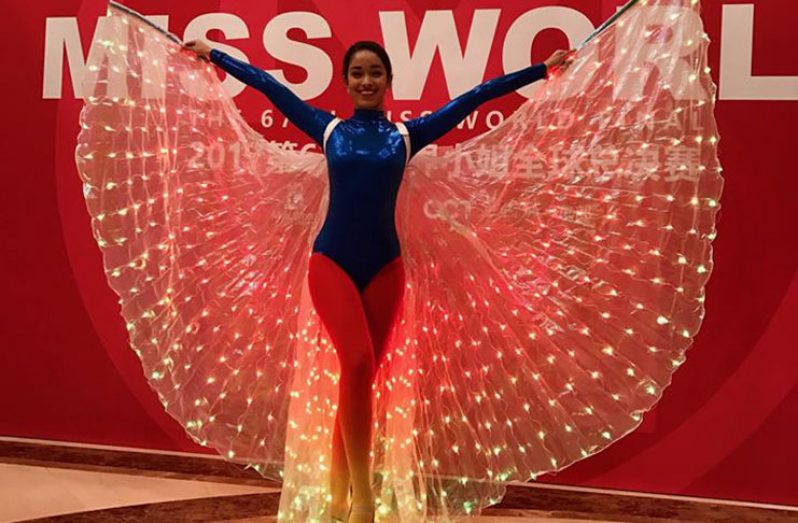…Despite lack of country support – Miss World Guyana Organisation
THE Miss World Guyana Organisation (MWGO) says that a lack of support from the home front made it a very challenging year for Guyana at the international pageant, which saw a new format largely focused on country support. However, the Organisation believes that despite this aspect,young Vena Mookram did the best she could and did Guyana proud.
The 67th edition of the Miss World Pageant came to a close last Saturday in Sanya , China, with India’s Manushi Chhillar, a medical student, taking the crown. Stephanie Hill of England and Andrea Meza of Mexico finished as runners-up.
“No, we did not achieve what we set out to acquire. I believe Vena did an amazing job in representing Guyana so well on the international stage. It was a world of experience for Vena.,” said MWGO franchise holder Natasha Martindale.
“I am proud of Vena and her efforts. [She is] a remarkable young woman with a bright future ahead of her. Her reign is not over even though the Miss World competition is over. Vena is still very much committed to her cause and her role as an ambassador; taking on the fight [against] diabetes by bringing awareness so as to prevent its escalation and encouraging our young people to live well and exercise in order to live healthy.”
This year saw some shakeup in the judging format of the Miss World pageant which combined some of the more traditional elements of the competition with a new and innovative series: the “Head to Head Challenge”.
There were also the usual “fast track challenges”, which included the Multimedia, Talent, Top Model, Sports and Beauty with a Purpose competitions, and saw the top performer in each competition being automatically placed in the top 40.
The head to head challenge was introduced much closer to the competition and caught many of the National Directors off guard.
This new format divided the contestants into 20 groups, with the public having to vote for their top choice in each category following a series of broadcasts of question and answer segments with the young ladies. This called for a lot more country support and media involvement from the countries and supporters of each of the delegates.
This left Guyana at quite the disadvantage, where pageants are not as much of a big a deal as they could be, and where support is often lacking, even when all you need to do is just click a like button.
“I am very concerned about this aspect,” Martindale explained.
“Support has always been our biggest and most challenging issue. We came about five percent short of beating Peru out of top 40. We were the lead coming into the head to head challenge but did not make it when it mattered.”
Martindale says that with the changing techniques, maybe it’s time to go back and re-think the marketing strategies of the MWGO.
“I understand the views on pageantry today, an almost obsolete system which seems impossible to revive. But our brand is different; what we have is a movement,” she asserted.
“I think now is the time for a different approach from a media relations perspective. Our team will now have to appeal to the media for help; get them to fall in love with our brand again; be as transparent as possible in getting them to understand the role we are undertaking – the need for our young women to get involved in programmes like ours which serve to build stronger values and empower our young women.”



.jpg)








